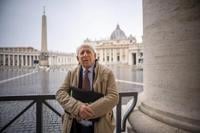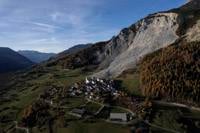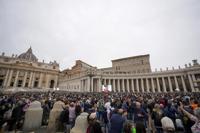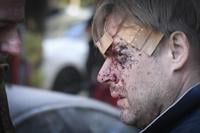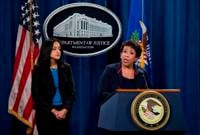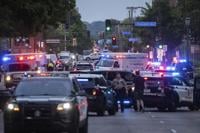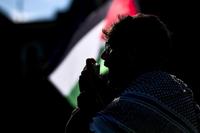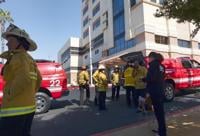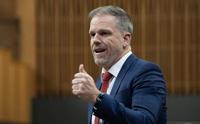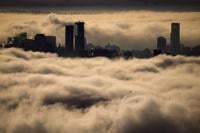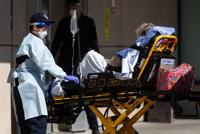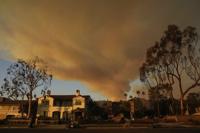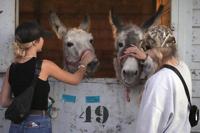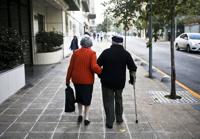ROME (AP) — Flying back to Rome from Beirut in September 2012, I was escorted down the aisle to the first-class section of the papal plane and seated beside Pope Benedict XVI.
The pope, then 85, looked and sounded weary. He had just completed a delicate, two-day visit to Lebanon as civil war raged in neighboring Syria.
It was my 92nd such trip: The first was with Pope John Paul II, the master of papal globe-trotting, and then over the past eight years with Benedict.
Because I was planning to retire, Benedict’s trip to Beirut was to be my last, and Vatican officials thought I should share the moment with him.
What I didn’t know at the time was that it was to be his last trip, too. In a few months, he would become the first pope to resign in 600 years.
On that flight, Benedict was clearly tired, but he remained as congenial as always.
“Congratulations on your retirement,’’ he said in a soft voice, speaking in his German-accented Italian that often made Italians chuckle.
When I told him that I had covered the Vatican for more than 30 years, he looked surprised. He sounded wistful as he said my retirement “is much deserved.”
I have always wondered whether our encounter led him to think about any plans of his own that he had not yet revealed to the world. The retirement date that he announced later was Feb. 28 — the exact date that I had chosen to retire.
On the plane, Benedict appeared pleased with our chat and seemed to be in no rush to end it — it was his aides who motioned to me that it was time to return to my seat.
“Gracious” is always a word I associate with Benedict, who was perpetually ready to shake hands and say something appropriate for the occasion.
In the Netflix drama “The Two Popes,” Benedict, as played by Anthony Hopkins, is depicted as uncompromising in his belief that the survival of the Roman Catholic Church can only be ensured by a return to its core principles.
Yet in his own way, Benedict was a revolutionary.
He was one to stand his ground and not back down, whatever outside pressures he came under. But he also seemed almost oblivious to the storms he would create.
When the inevitable questions arose about his past in Nazi Germany, he could point out he had covered that territory in several interviews done years before becoming pope: his mandatory membership in the Hitler Youth as a teenager; being drafted into the military near the end of the war; his desertion and surrender to the Americans.
He thus avoided controversies faced by others who were less honest about their histories. That certainly smoothed the way for his papal visits to the Nazi death camp at Auschwitz, to Israel and to synagogues in Rome and New York.
It was fascinating to hear him chat in German with Rabbi Arthur Schneirer, the Vienna-born rabbi, during a stop at New York’s Park East Synagogue. They sounded like two old friends.
In one of the major crises of his papacy, a speech aimed at promoting tolerance among religions ended up provoking anger — and even some violence — in the Islamic community.
In a 2006 speech at Regensburg University in Germany, where he once served as a professor of theology, Benedict quoted a 14th-century Byzantine emperor who called Islam “evil and inhumane, such as his (the Prophet Muhammad’s) command to spread by the sword the faith he preached.”
The remarks drew swift condemnation in the Muslim world, but Benedict appeared surprised that what he saw as a scholarly discourse could create such rancor.
He said he “deeply regretted” that some took offense, but that he needed to insist that religion can never be a motivation for violence.
Years later, his former spokesman, the Rev. Federico Lombardi, said Benedict knew exactly what he meant with his remark.
When Benedict made his first trip to Africa, a French reporter asked in a news conference aboard the flight to Cameroon in 2009 whether condoms could play a role in fighting HIV.
“On the contrary, it (condom use) increases the problem,” he said.
Journalists and others on the plane were baffled by the response, which contradicted the views of health workers and many of his own priests battling the disease on the continent.
He backtracked a bit a year later, saying that condom use could be a first step toward a more moral behavior to prevent the spread of HIV.
It was the kind of clarification that was a sign of the lingering confusion and Vatican infighting that marked Benedict’s papacy.
In the years after his resignation, Benedict turned increasingly fragile and remained out of public view in a monastery inside the walls of Vatican City. He mainly devoted himself to prayer.
But his contributions to the church, which included opening the way for Pope Francis, were not forgotten by his Argentine successor. In 2021, when Benedict was 94, Francis issued a public thank you to the German on the 70th anniversary of his ordination to the priesthood.
“To you Benedict, dear father and brother, goes our affection, our gratitude and our closeness,” Francis said.
___
Victor L. Simpson covered the Vatican for The Associated Press from his arrival as a correspondent in Rome in 1972 to his retirement as Italy bureau chief in 2013. During that period, he covered the final months of Pope Paul VI, the 33-day tenure of Pope John Paul I, and the papacies of St. John Paul II and Benedict XVI, including 92 of their trips abroad.
___
Follow AP’s coverage of the death of Pope Emeritus Benedict XVI at


